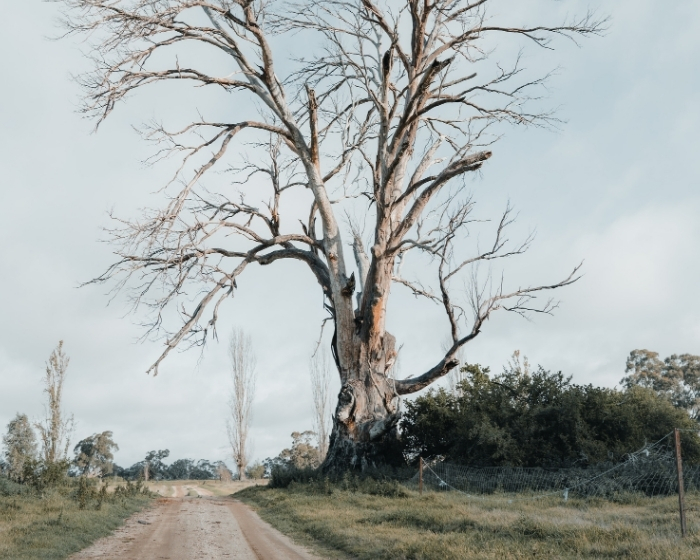The Christian 40-day season of Lent began back in mid-February. It is a time of reflection and preparation for Easter, which this year is in early April. It is a time for us to focus and prepare for Good Friday and the realisation that it was our sin that crucified Jesus.
There is a story in the Bible about a boy named David, who God chose to be King. God chose him not because he was an amazing bloke, but simply because the Lord saw in him “one after my own heart”.
David was not perfect – his sin of adultery with Bathsheba was despicable – but his outright respect for and awe of God brought him immediately to confession. David’s recognition of his sin did bring him back to God’s light.
We too have this privilege: to go to the Cross of Jesus with confession on our lips and repentance in our hearts to find that we have been forgiven and that we can walk joyfully through this life and the next. For God so loves us that Christ died for us.
Some time ago, a big tree fell down in our garden, smashing the wall and blocking our neighbour’s driveway. It happened during a night in which there was no wind or rain or any other weather-related reasons. We discovered afterwards that the tree was rotten at a fork in the trunk where water had gathered over the years. We had to do something quite quickly, so I asked a friend to come along with his chainsaw to cut the tree into manageable proportions. We had the fence repaired, and removed other suspect branches on the tree and all the mess from our neighbour’s garden.
It struck me afterwards that this was a parable of what often happens in our lives. On the outside we are strong and bold, but where we break out from the main stem we create potential for the rot to set in. No-one notices it until one day part of us collapses, breaking things as it falls and blocking the way for others. And then, we need to clean-up the mess.
We can seldom clean it up on our own; we depend on others and often that adds to complications. And we need to check the rest of our life to make sure that there is no rottenness likely to create future problems.
After the tree was cut up and neatly stacked in our neighbour’s yard, it took over a week for the contractors to remove the debris. Our neighbour visited me daily asking when it was to be moved, the leaves were drying and creating a real mess in his garden. Our problem had implicated his life also.
I am not a forester or gardener of much skill, but I believe that the situation could have been prevented. First, by ensuring that rotten water was not collecting in the fork of the trunk. Second, a regular check could have foreseen the problem. Third, I should have heeded the warning by a previous neighbour who had wanted to remove the offending part some years earlier. In life, we also have these options.
Tall straight trees do not have this kind of problem – it happens when branches head out on their own mission from the main trunk of the tree.
Where our lives divert from God, we are often in danger of the rot setting in. We need to conduct regular check-ups on our lives. We should also heed the counsel of others. If I had listened to my former neighbour, the problem would not have arisen.
Our lives are often not right and in the busyness of life, we seldom stop to fix them up. Every machinist knows that you cannot work a machine forever – the settings change, wear and tear takes its toll. You have to stop periodically to service the machine or it will produce bad output. It is no different in our lives.
Jesus came to us, died for us so that we could reset our lives. We too easily find ourselves in the dark, and that’s the point of Lent. It’s not about being sombre and gloomy, but about rediscovering our source of being.
Rev David de Kock, General Secretary of the Uniting Church WA
